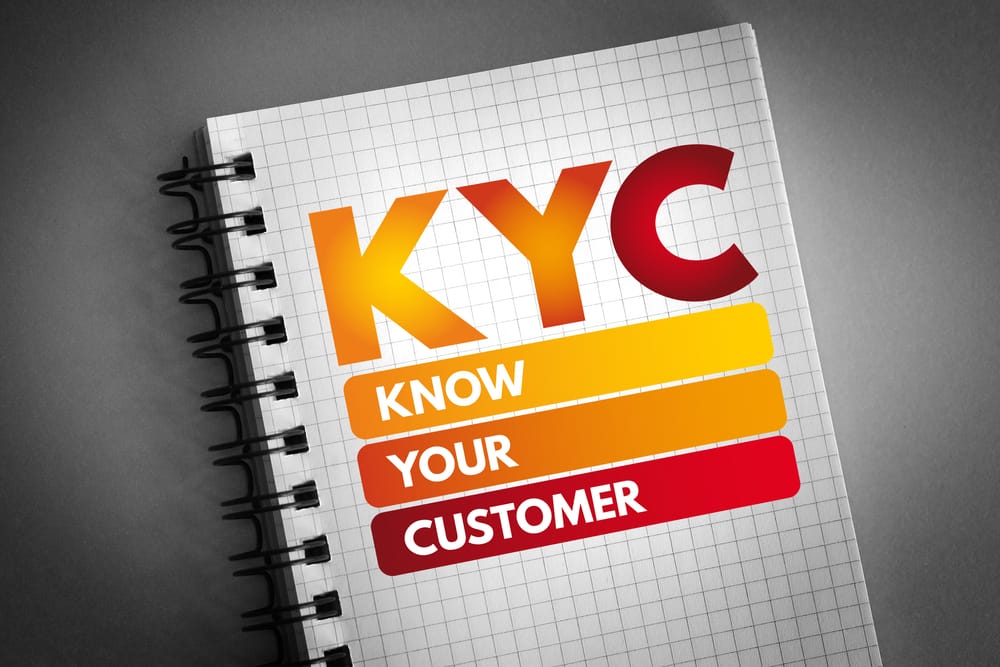Why KYC Matters in the Digital Age
With today’s business and financial markets increasingly facing the challenge of keeping up with a rapidly evolving digital world, knowing who you’re dealing with and how to protect sensitive data and assets from being accessed by fraudulent users is essential. Know Your Customer (KYC) protocols and platforms provide a clear path for businesses and institutions to remain compliant with changing legislation and streamline their operations, without having to expend unnecessary (and inefficient) manpower to try and keep up.
As one of the most important first lines of defence against fraud, money laundering, human trafficking, and other illicit activities, making sure your KYC processes are as effective as possible is crucial not only for compliance sake, but for contributing to a safer global marketplace for all individuals.
Below, we’ll take a closer look at why KYC matters in the digital age. Read on to learn more.
Identity Verification in the Digital Age
Identity verification has always been a challenging factor to contend with, but in a digital era where millions of users can hide behind different platforms, being able to accurately confirm the identity of prospective partners is vital. KYC processes utilize a variety of methods, including document verification, biometric authentication, and digital identity checks, to validate the identity of customers and circumvent impersonation and unauthorized access attempts.
Countering Digital Fraud
Digital fraud is on the rise, and with evolving technology providing ample opportunities for criminals to exploit various measures for their own gain, countering fraud has become difficult. From phishing to account take overs, ransomware, and other illicit activities KYC software provides powerful too that helps businesses and financial institutions combat fraud and handle threats effectively when they arise. Early detection is key to minimizing financial losses and protecting the interests of both businesses and customers; By collecting and analyzing customer data, including personal information, financial history, and transactional behaviour, organizations can identify suspicious activities and potential fraudsters, leaving your operations safe and secure when it matters most.
Regulatory Compliance in the Digital World
Governments and regulatory bodies worldwide have recognized the necessity of KYC in combating financial crimes, money laundering (AML) , and terrorism financing (CFT). With such threats becoming increasingly dominant in the marketplace, legislation is more important than ever before, and compliance is no longer a nicety for those conducting business on both a domestic and global level. Failure to comply now comes with costly fines and the potential for serious criminal charges all of which can be easily avoiding by prioritizing KYC mandates and building them into your day to day operations.
Data Security and Protection
Gathering customer information as part of KYC necessitates a heightened focus on data security. Data breaches, cyberattacks, and illicit data mining have all become commonplace, and ensuring you have the right protocols in place to prevent unauthorized access is crucial. Businesses that implement KYC processes are often required to adhere to stringent data security standards and encryption practices that protect customer information, and limit the negative effects of a potential data breach.
In the digital age, KYC isn’t just about verifying identities, it’s also using the information gathered to prevent illegal access to valuable data, accounts, and other credentials that enable further crime to take place. With the right measures in place, KYC protocols can help ensure that, even if a fraudster does manage to access gate kept information, they are unable to fully authenticate themselves and pose as the legitimate account holder. Pairing high tech options like biometric scanning with multi-factor authentication (MFA) or other advanced methods, alongside continuous monitoring can can detect and prevent unauthorized access attempts, thwarting potential security breaches.
Strengthening Customer Trust
In an era where online trust is sometimes hard to come by, businesses must strive to do better and earn the trust of their customers Through implementing robust KYC measures, organizations demonstrate their commitment to security, integrity, and responsible business practices; gaining the loyalty of customers in the process. Knowing that their personal and financial information is being protected by rigorous KYC procedures can boost customer confidence and strengthen your position as an industry leader committed to ethical business.
Adaptation to Emerging Technologies
Finally, the current digital forward market has transformed the stander consumer relationship to technology as a whole. As users look towards new technologies like blockchain and decentralized finance (DeFi) KYC protocols adapt to handle evolving risks.
digital realm. As online transactions and interactions become increasingly integral to our lives, businesses and financial institutions must prioritize and enhance their KYC practices to protect both themselves and their customers in this dynamic digital landscape.
Stay on Top of the Digital World with iComplyKYC
At iComply, we know that the costs of non-compliance in the digital world can be devastating both financially and for your business as a whole. To help you mitigate risk and stay on top of current legislation, we offer a unique, end-to-end suite of KYC + KYB software that utilizes a modular platform that can be integrated into your workflow seamlessly with minimal downtime.
learn more
Is your AML compliance too expensive, time-consuming, or ineffective?
iComply enables financial services providers to reduce costs, risk, and complexity and improve staff capacity, effectiveness, and customer experience.
Request a demo today.
Understanding KYC and Its Importance for Law Firms
Know Your Customer (KYC) processes are essential for law firms to verify the identities of their clients, mitigate risks, and adhere to regulatory requirements. This article explores the importance of KYC for law firms and...
Implementing Effective AML Solutions in Law Firms
Anti-Money Laundering (AML) solutions are critical for law firms to prevent financial crime and ensure regulatory compliance. Implementing effective AML solutions involves strategic planning and the adoption of best practices....
Navigating KYB Compliance for Law Firms
Know Your Business (KYB) compliance is essential for law firms to verify the legitimacy of their business clients, mitigate risks, and adhere to regulatory requirements. This article explores the best practices and strategies for...








